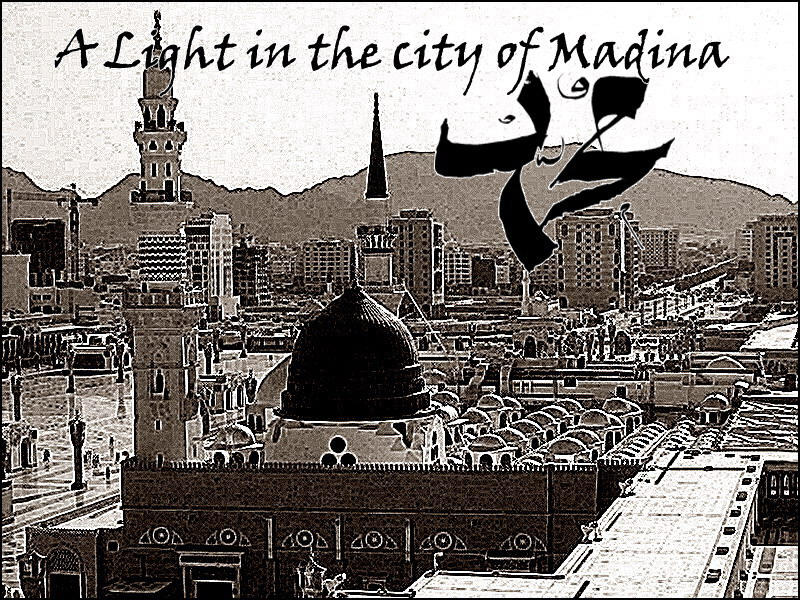Islamic Wallpaper Madina Islamic Wallpaper Hd Quotes desktop for Mobile free download for facebook hd 1080p 3d Desktop Background
Source:Google.com.pk
The Current Status of Islam
At this point we should discuss the current status of Islam.
In doing so, it's important to realize that Islam is not a monolithic system.
Though all Muslims draw their inspiration from Muhammed and the Koran, there
are many identifiable groups and movements within Islam.
The most obvious division is that between Sunni and Shia
Islam. The Sunnis (who compose about 90% of all Muslims) draw their name from
the fact that they look both to the Koran and to the "sunna" in
establishing proper Muslim conduct. The "sunna" is the behavior or
example of Muhammed and of the early Muslim community. Of course, there are
many sub-divisions among the Sunnis, but they all identify themselves as Sunni.
The other major group of Muslims are the Shi'ites (who
compose about 10% of all Muslims and reside mainly in Iraq and Iran). The word
Shi'ite means "partisan," and refers to the fact that Shi'ites are
"partisans of Ali." Ali was the son-in-law and cousin of Muhammed and
one of the early Caliphs or successors to Muhammed as leader of the Muslim
people. Shi'ites believe that the leader of Islam should be among the
descendants of Ali, whom they believe possess a special divine anointing for
this task. The last of these divinely appointed leaders, or "imams"
most Shi'ites believe to be in "hiding" in another realm of
existence. The Ayatollah Khomeini was believed to have been a spokesman for
this "hidden imam."
A third group that should be mentioned are the Sufis--those
Muslims (among both Sunni and Shia) who seek a mystical experience of God,
rather than a merely intellectual knowledge of Him, and who also are given to a
number of superstitious practices.
In addition to these divisions within Islam, mention must
also be made of attitudes among Muslims toward their contact with the Western
world in modern times. Though the situation is much more complex than we are
capable of dealing with in this pamphlet, two broad trends have been evident
within Islam.
One trend is toward some degree of accommodation and
adjustment to the West and to modern ways of life. This has manifested itself
most obviously in countries like Turkey, which have instituted largely secular
forms of government and Western ways of life, while maintaining Islamic
religious practices.
The opposite trend is toward a return to a more traditional
approach to Islamic life and a rejection of Western and modern ways. The most
extreme expression of this trend is manifest in the various forms of Islamic
fundamentalism, which insist on the implementation of Muslim law (called the
Sharia) in every area of life. Fundamentalists have been most successful in
Saudi Arabia, Iran, Pakistan, and Sudan; but they are active in virtually every
Muslim country, at times resorting to violence and terrorism in attempting to
implement their agenda.
In understanding this potent religious and political
movement, it is important to understand the various divisions and attitudes
within Islam and the basic beliefs at Islam's core.
The Basic Beliefs of Islam
Though the beliefs of Muslims worldwide are about as diverse
as those among Christians, there are six basic articles of faith common to
nearly all Muslims.
The first of these is that there is no God but Allah. The
pre- Islamic Arabs were polytheists. But Muhammed succeeded in leading them to
devote themselves solely to the chief God of the pantheon whom they called
Allah (which simply means God). To worship or attribute deity to any other
being is considered shirk or blasphemy. The Koran mentions numerous names of
Allah, and these names are found frequently on the lips of devout Muslims who
believe them to have a nearly magical power.
The second article of faith is belief in angels and jinn.
Jinn are spirit beings capable of both good and evil actions and of possessing
human beings. Above the jinn in rank are the angels of God. Two of them are
believed to accompany every Muslim, one on the right to record his good deeds,
and one on the left to record his evil deeds.
The third article is belief in God's holy books, 104 of
which are referred to in the Koran. Chief among these are the Law given to
Moses, the Psalms given to David, the Gospel (or Injil) given to Jesus, and the
Koran given to Muhammed. Each of these is conceived to have communicated the
same basic message of God's will to man. Obvious discrepancies between the
Jewish and Christian Scriptures and the Koran (particularly with reference to
Jesus and Muhammed) were accounted for by Muhammed in his suggestion that the
Bible had been tampered with by Jews and Christians.

.jpg)







No comments:
Post a Comment